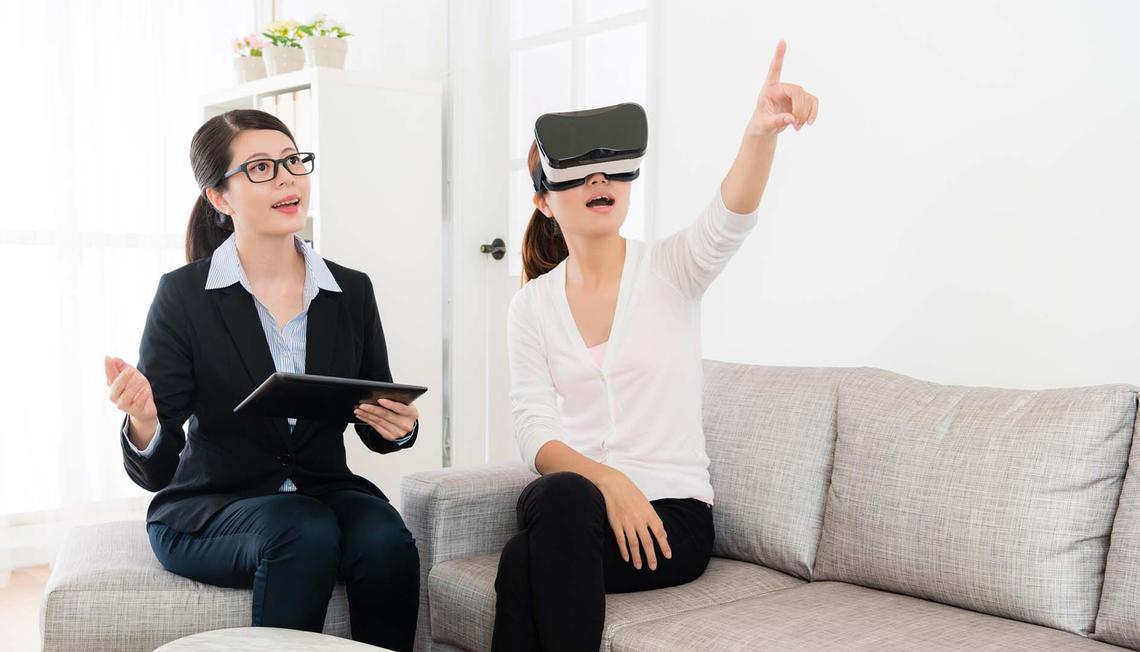In the rapidly evolving landscape of real estate, technology continues to revolutionize the way we buy and sell homes. One of the most transformative innovations in recent years has been the advent of virtual home tours. These digital experiences allow prospective buyers to explore properties from the comfort of their own homes, offering convenience, flexibility, and a new level of immersion in the home buying process.
Virtual home tours utilize cutting-edge technology, such as 3D modeling, panoramic photography, and virtual reality (VR), to create realistic and interactive representations of properties. Through a combination of high-definition images, detailed floor plans, and interactive features, users can virtually navigate through every room and space within a home, gaining a comprehensive understanding of its layout, design, and features.
One of the primary advantages of virtual home tours is their accessibility. Prospective buyers no longer need to schedule in-person viewings or travel long distances to explore properties. Instead, they can access virtual tours online at any time, using their computer, smartphone, or VR headset. This accessibility has been particularly valuable during periods when physical viewings might be inconvenient, allowing individuals to explore properties at their own pace and on their own terms.
Furthermore, virtual home tours cater to the preferences and needs of modern consumers. With busy schedules and demanding lifestyles, many homebuyers appreciate the convenience of being able to explore properties remotely, without disrupting their daily routines. Virtual tours also empower buyers to conduct thorough research and comparison shopping, enabling them to narrow down their options and identify properties that best align with their criteria before committing to in-person viewings.
For sellers and real estate agents, virtual home tours offer a competitive edge in marketing properties effectively. By providing immersive and engaging experiences, virtual tours attract more attention from potential buyers and stand out in a crowded marketplace. Additionally, virtual tours can help streamline the sales process by pre-qualifying leads and reducing the number of unnecessary in-person showings, allowing agents to focus their time and resources more efficiently.
The rise of virtual home tours has also led to innovations in property presentation and staging. Virtual staging, for example, allows vacant or unfurnished properties to be digitally furnished and decorated, giving buyers a better sense of the home’s potential and enhancing its appeal. Similarly, augmented reality (AR) technology enables users to visualize renovations or design changes in real-time, helping them envision the possibilities for customization and personalization.
While virtual home tours offer numerous benefits, they are not without limitations. Some critics argue that virtual tours cannot fully replicate the experience of physically visiting a property, particularly when it comes to assessing factors such as natural light, spatial proportions, and overall ambiance. Additionally, technological barriers, such as compatibility issues or slow internet connections, may hinder the user experience for some individuals.
Despite these challenges, the popularity of virtual home tours continues to grow, driven by advancements in technology and shifting consumer preferences. As virtual reality, augmented reality, and other immersive technologies continue to evolve, the potential for creating lifelike and engaging virtual experiences will only expand further.
In conclusion, virtual home tours represent a paradigm shift in the real estate industry, offering a convenient, accessible, and engaging way for buyers to explore properties remotely. By leveraging technology to create immersive digital experiences, virtual tours empower both buyers and sellers, streamlining the home buying process and enhancing the overall real estate experience. As technology continues to advance, virtual home tours will likely become an integral aspect of the home buying journey, reshaping the way we discover, evaluate, and envision our future homes.
Compliments of Virtual Results





 By submitting information, I am providing my express written consent to be contacted by representatives of this website through a live agent, artificial or prerecorded voice, and automated SMS text at my residential or cellular number, dialed manually or by autodialer, by email, and mail.
By submitting information, I am providing my express written consent to be contacted by representatives of this website through a live agent, artificial or prerecorded voice, and automated SMS text at my residential or cellular number, dialed manually or by autodialer, by email, and mail.
